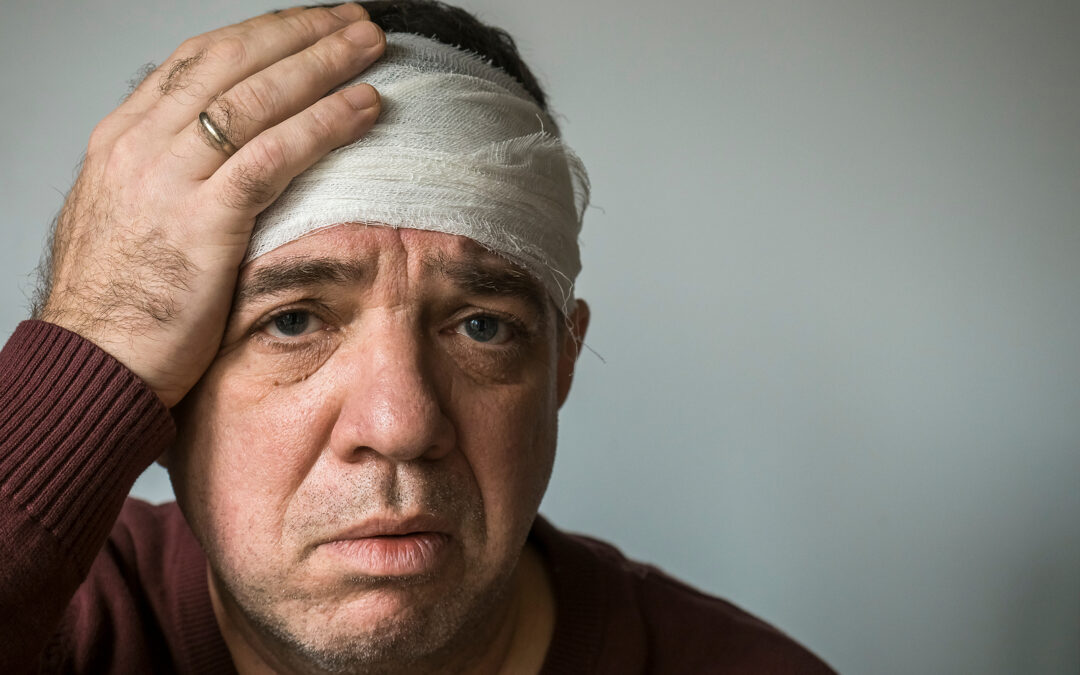Did you know that head injuries can cause hearing loss? Impacting over 48 million people, hearing loss is one of the most pervasive health conditions people live with today. Hearing loss reduces ability to hear speech and sound which often takes a toll on communication – a key way we navigate everyday life. Identifying and modifying risk factors is an important way to prevent hearing loss which is an incurable condition. Head injuries are a known cause of hearing loss so increasing physical safety is a useful way to also protect your hearing health.
How common are head injuries?
Head injuries occur more often than you might expect. The Centers for Disease Control and Prevention (CDC) estimate that as many as 3 million head injuries happen every year. Head injuries include concussions which are more mild as well as traumatic brain injuries (TBI) which are the most severe type of head injury one can experience. One in three head injuries is a traumatic brain injury. Though people of all ages can experience a head injury, men between 15-35 experience the highest risk which is likely due to their engagement in contact sports – a common cause of head injuries. .
What are the effects of head injuries?
The most common causes of head injuries are contact sports, car and bike accidents as well as falls. Head injuries involve excessive force to the head which impacts the brain. The brain can run up against the skull which can cause severe outcomes like hemorrhaging, swelling, bruising and more. This impact can produce various symposium including:
- Vertigo, lack of balance, unsteadiness.
- Light and sound sensitivities.
- Tinnitus: a ringing noise in the ears.
- Headaches or migraines.
- Hearing challenges.
Head injuries that are more severe can lead to chronic effects on health including:
- Mobility issues.
- Mood swings, social withdrawal, depressive symptoms.
- Reduced cognitive functions.
Another chronic effect of head injuries is damage to the auditory system which produces hearing loss.
How can head injuries cause hearing loss?
Head injuries can cause hearing loss in a few ways. Hearing involves a complex process that includes the ears and brain which work together to absorb and process sound:
- Outer ear: the most visible part of the ear (the outer cartilage), absorbs soundwaves from the environment. These soundwaves travel through the ear canal and land on the eardrum.
- Middle ear: the eardrum along with the ossicles, three tiny bones that are connected in the middle ear, help push soundwaves into the inner ear.
- Inner ear: thousands of sensory cells in the cochlea help convert incoming sound waves into electrical signals. These signals get carried to the brain which assigns meaning to them, enabling us to understand what we hear.
Head injuries can affect different parts of this process. This includes breaking or rupturing the ossicles, damaging sensory cells in the inner ear, rupturing the eardrum, and constricting blood flow to the ears. This prevents these components from performing their essential functions which causes hearing loss.
How can I protect my hearing health?
There are a few safety measures you can practice to reduce your risk of head injuries and hearing loss. This is especially important for people who are at higher risk of experiencing a head injury. A few strategies are:
- Wear protective gear: one of the best ways to prevent a head injury is to wear protective gear. This includes wearing a helmet while riding a bike and/or playing contact sports like baseball or football. Additionally, always wearing a seatbelt while driving is also important.
- Wear hearing aids: if you have hearing loss, be sure to always wear your hearing aids throughout the day. Hearing aids support hearing in all environments. This increases safety and spatula awareness which reduces the risk of falls.
- Test hearing regularly: another effective prevention strategy is getting your hearing tested regularly. This identifies any hearing loss and allows you to intervene early if symptoms are present.
Contact us to learn more about how you can best protect your hearing health. Our practice offers a suite of services and resources that are invested in identifying and treating hearing needs as well as supporting hearing health in everyday life. Call us today to schedule an appointment for a hearing aid consultation.


